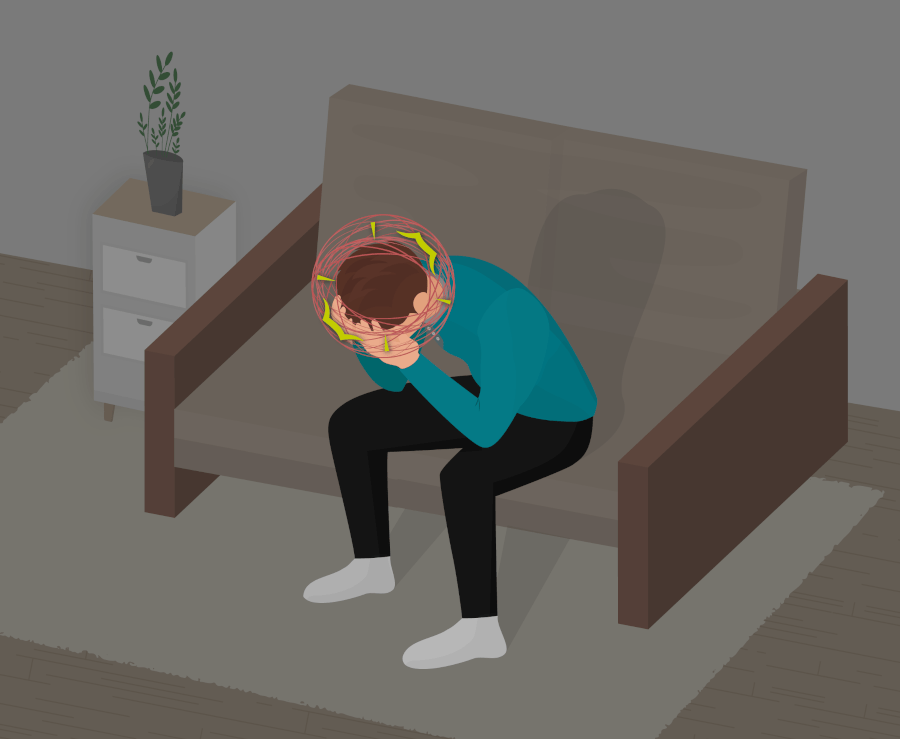
What are psychological injuries?
Psychological injuries are injuries that cause mental harm or suffering. In personal injury law, these injuries are more likely to occur in traumatic events like serious car accidents.
One common type of psychological injury in personal injury law is post-traumatic stress disorder (“PTSD”). PTSD is a mental health condition triggered by a terrifying event you experienced or witnessed. As a result of developing PTSD, you may experience flashbacks, nightmares, severe anxiety, or uncontrollable thoughts about the event.
NOTE: You can develop PTSD by witnessing a traumatic event without being physically injured yourself. While you may think the lack of physical injuries may mean you aren’t entitled to compensation, it does not.
Common personal injury claims involving PTSD
Some personal injury claims result in PTSD more than others. These are often the more tragic or severe and can include:
- Serious/Fatal Car Accident Claims
Serious car accidents frequently cause PTSD. In fact, 25% to 33% of people in car accidents develop PTSD within around 30 days after a motor vehicle accident. - Sexual and Physical Assault Claims
Victims of assault often have PTSD. Outside criminal proceedings, victims of these claims can seek compensation for their injuries through a civil lawsuit against the responsible party. - Pedestrian and Cycling Accidents
Accidents involving pedestrians or cyclists often have more severe injuries, including PTSD, because of their lack of protection when the accident occurred.
These are just some of the claim types that can be associated with PTSD. It is essential to consult an experienced personal injury lawyer to know the ins and outs of your specific claim. Only then will you be able to receive the compensation you deserve.
How is PTSD diagnosed?
While the exact route to diagnosis may differ from case to case, diagnosing PTSD often requires a physical examination, a psychological evaluation, and a diagnostic tool, such as the Diagnostic and Statistical Manual of Mental Disorder (DSM-5).
However, you do not need a formal diagnosis to receive compensation for a psychological injury like PTSD. The 2017 Supreme Court Case Saadati v. Moorhead, 2017 S.C.C. 28, [2017] 1 S.C.R. 543, determined that people no longer require a formal diagnosis to receive compensation for mental injury.
PTSD treatment options
Treatment providers design PTSD treatment options to help victims learn strategies to deal with their symptoms and restore their self-esteem. Treatment can include cognitive processing therapy, prolonged exposure therapy, and medication. The exact nature of your treatment will depend widely on the cause of your PTSD and the symptoms you are experiencing.
How can PTSD impact my claim?
As a good lawyer will explain, there are multiple ‘damage categories’ in a personal injury claim. Some include general damages, past wage loss, diminished earning capacity, future care costs, and loss of housekeeping abilities. The exact damage award categories you receive depend on the specific context of your claim. Common damage categories associated with claims for PTSD are:
- General Damages (or ‘Non-Pecuniary’ Damages)
General damages compensate you for your pain, suffering, and loss of enjoyment of life. These damages are highly subjective. Claims involving PTSD often see general damages awards, given the impact that PTSD has on an individual’s daily life. - Diminished Earning Capacity
This refers to an individual’s diminished ability to perform the essential duties of their job. As seen in the example below, a person with PTSD can experience a reduced ability to perform their job or seek advancement in their career. - Future Care Costs
Additionally, PTSD victims, depending on the severity, may require long-standing treatment to allow them to mitigate some of the symptoms they experience. Canadian courts have seen portions of damage awards for claims involving PTSD incorporate a future care costs component, depending on the extent of treatment required. This helps the victim pay for the treatment they need to live as normally as possible.
PTSD case law
Here are some case law examples to help you understand how PTSD can contribute to your overall damage award.
In Trenholm v. H & C Trucking Ltd., 2014 NSSC 90, Ms. Trenholm was walking along the highway with friends when a transport truck struck the friends, killing one and seriously injuring the other. Ms. Trenholm was not physically injured, but developed PTSD due to the accident and sued the trucking company for compensation. The court awarded Ms. Trenholm $75,000 in general damages and $20,000 for diminished earning capacity. Ultimately, the judge was satisfied that the accident and resulting PTSD had given her a low self-esteem and a lack of confidence, which made her more withdrawn and less likely to seek employment or advancement in her career. The judge held that the psychiatric injury was significant, persistent, and profoundly impacted her life.
In Jane Doe v. M.N., 2018 NLSC 162, Jane Doe brought an action against an Army Cadet instructor for a sexual assault that occurred when she was a minor. The court ultimately determined that the cadet’s actions had a serious and traumatic effect on her. She was awarded $110,000 in non-pecuniary and aggravated damages, close to $10,000 in special damages, and $7,500 in future care damages.
Have questions for our team?
Request a
Free Consultation
If you would like to learn your legal options at no obligation, contact us today to set up a free consultation.
